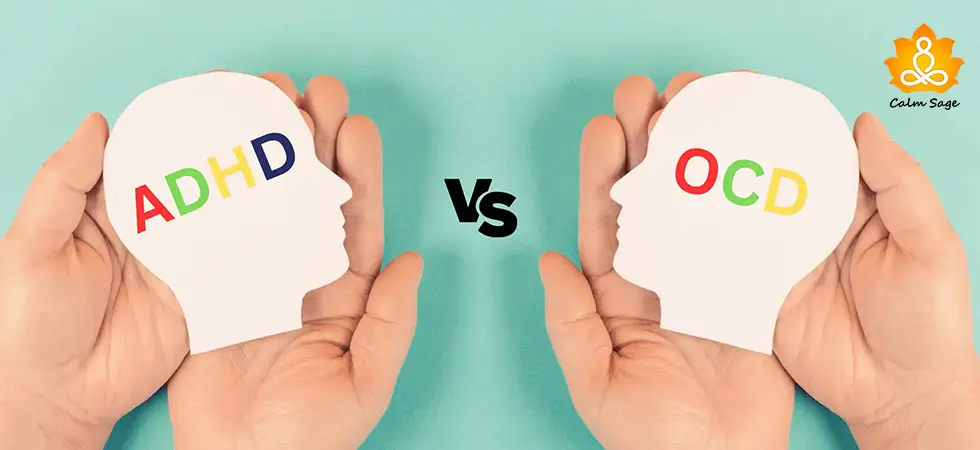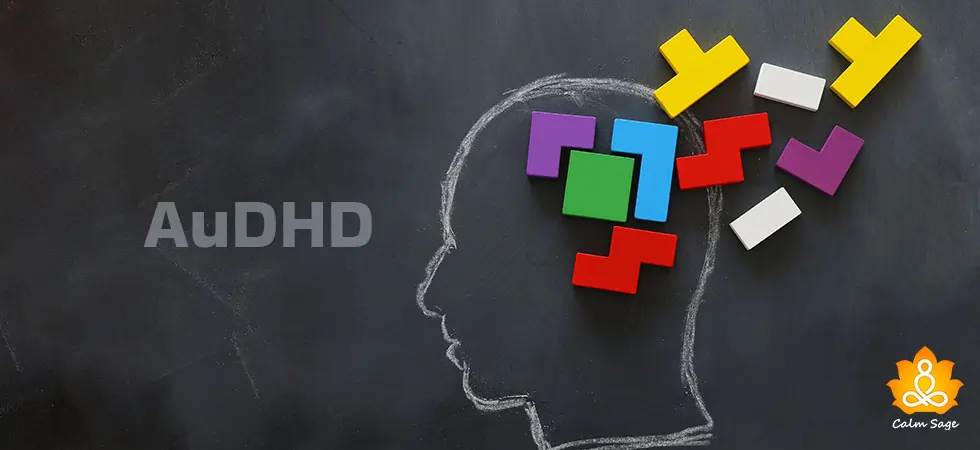What is Anxious ADHD : Signs, Causes and Treatment

Attention deficit hyperactivity disorder (ADHD) and generalized anxiety disorder (GAD) are two different mental health problems with different symptoms and different impacts on the overall life of a person. Generally, they are diagnosed as two different mental health conditions with different treatment approaches.
However, have you ever thought that these conditions can be connected to each other? Well, psychologically, yes, it can be possible to be diagnosed with both conditions at the same time. Such a diagnosis made by an experienced and registered mental health professional is known as “Anxious ADHD.”
Commonly, it is referred to as ‘Anxious ADHD”, however, the term ADD is no longer used by psychologists. Instead, ADHD is used in the DSM-5. In this topic, we will be using ADHD in place of ADD as it’s an older term now.
In this blog, we will be taking a deep look at what anxious ADD means, the connection between anxiety and ADHD, its symptoms, causes, impacts on overall well-being, and the right treatment approaches. So, let’s get started!
What is Anxious ADHD?
Anxious ADHD develops when an individual struggles with neurodevelopmental disorder ADHD and also struggles with clinical symptoms of generalized anxiety disorder (GAD). Anxious ADHD does not stand for a clinical diagnosis as the term is not mentioned in the Diagnostic and Statistical Manual of Mental Disorders 5th Edition (DSM-5). However, the term is commonly used by psychologists or mental health professionals to refer to the presence of anxiety and ADHD in an individual.
What is Anxiety?
Anxiety generally revolves around mental symptoms such as fear, worry, or nervousness. When an individual struggles with a lot of distress or excessive anxiety, they meet the criteria for the diagnosis of anxiety disorders such as panic disorder, social anxiety, disorder, generalized anxiety disorder (GAD), and more.
What is ADHD?
Attention deficit hyperactivity disorder (ADHD) is a term generally used for predominantly inattentive presentation in an individual. ADHD is a neurodevelopmental disorder and a few of the major symptoms of ADHD are:
- Difficulty focusing
- Difficulty paying attention
- Distracted and disorganized personality
- Forgetfulness or losing things
- Difficulty listening to people
The Connection Between Anxiety and ADHD
As far as I have researched, I could find that the connection between ADHD and Anxiety is complex. People are not able to manage their emotions and attention due to ADHD which triggers stress and anxiety in individuals. Additionally, the symptoms of ADHD sometimes accurately mimic the symptoms of anxiety such as restlessness, impulsivity, and inattention.
Symptoms of Anxious ADHD
Research shows that around 80% of people diagnosed with ADHD get one additional diagnosis and around 50% of people diagnosed with ADHD get an additional diagnosis of an anxiety disorder.
Psychologists stated that people with Anxious ADHD have different symptoms than usual diagnoses of ADHD or anxiety. Additionally, comorbid symptoms of ADHD can make the diagnosis process more difficult. Below listed are some of the common symptoms of anxious ADHD:
- Anxiousness
- Chronic stress symptoms such as sleeping difficulties, rapid heartbeat, and others
- A constant fear of criticism
- Inability to focus
- pessimism
- Social anxiety
Impact of Anxious ADHD
People with anxious ADHD face various challenges in their regular lives as they have to deal with two clinical mental health problems regularly. Generally, they experience difficulty in staying focused, attentive, and controlling impulses which upsurges their anxiety levels. Such a challenging life can lead to problems in occupational, academic, and personal life. due to which intense fear, worry, and panic can be seen and this might also result in physical symptoms such as sweating, rapid heartbeat, fatigue, and sleep disturbances.
Causes of Anxious ADHD
Research shows that the development of anxiety disorders is mainly due to a genetic component which means family history or genetics plays an important role. However, some specific stressors or environmental factors can also develop anxiety.
Talking about ADHD is basically caused by genetic components. Research shows that people with undiagnosed ADHD might also develop anxiety symptoms.
Diagnosis and Treatment of Anxious ADHD
Since symptoms of ADHD and anxiety mask each other, it’s important to seek a proper diagnosis and treatment approach from a registered and experienced mental health professional only.
Throughout the diagnosis process, a mental health professional or a psychologist tries to understand the connection between the symptoms and performs an evaluation on the basis of the following factors:
- Clinical and past history-related interview
- Building norm-referenced data to compare the symptoms
- Self-report scales to measure the levels of your anxiety
Coming forth to the treatment process, there’s a specific treatment plan for each individual with anxious ADHD. Basically, the mental health professional decides on the treatment plan on the basis of the severity and needs of the patient. Below listed are some of the effective treatment options for Anxious ADHD:
1. Medications
On the basis of the psychologist’s treatment plan, there would be specific medications for ADHD and anxiety such as Adderall, Strattera, benzodiazepines, and SSRIs.
2. Psychotherapy
Psychotherapy options are generally decided on the basis of the severity of the symptoms and needs of the patient. Cognitive behavioral therapy, dialectical behavioral therapy, mindfulness therapy, and solution-focused therapy are some of the common therapy options for treating anxious ADHD.
Self-Help Tips to Manage Anxious ADHD
If you or your loved one is recently diagnosed with Anxious ADHD know that, social support and understanding the needs of your loved one are the most important components for managing the symptoms. Moreover, getting the right knowledge can also help you manage the symptoms of anxious ADHD.
Additionally, time-management strategies, consistent and strict routines, organization of tasks and documents, and short-term goals can help someone with anxious ADHD symptoms.
I hope this blog helps you understand what is anxious about ADHD and how to get the right treatment. For more such content, connect with us through all social media platforms.
Thanks for reading!




















